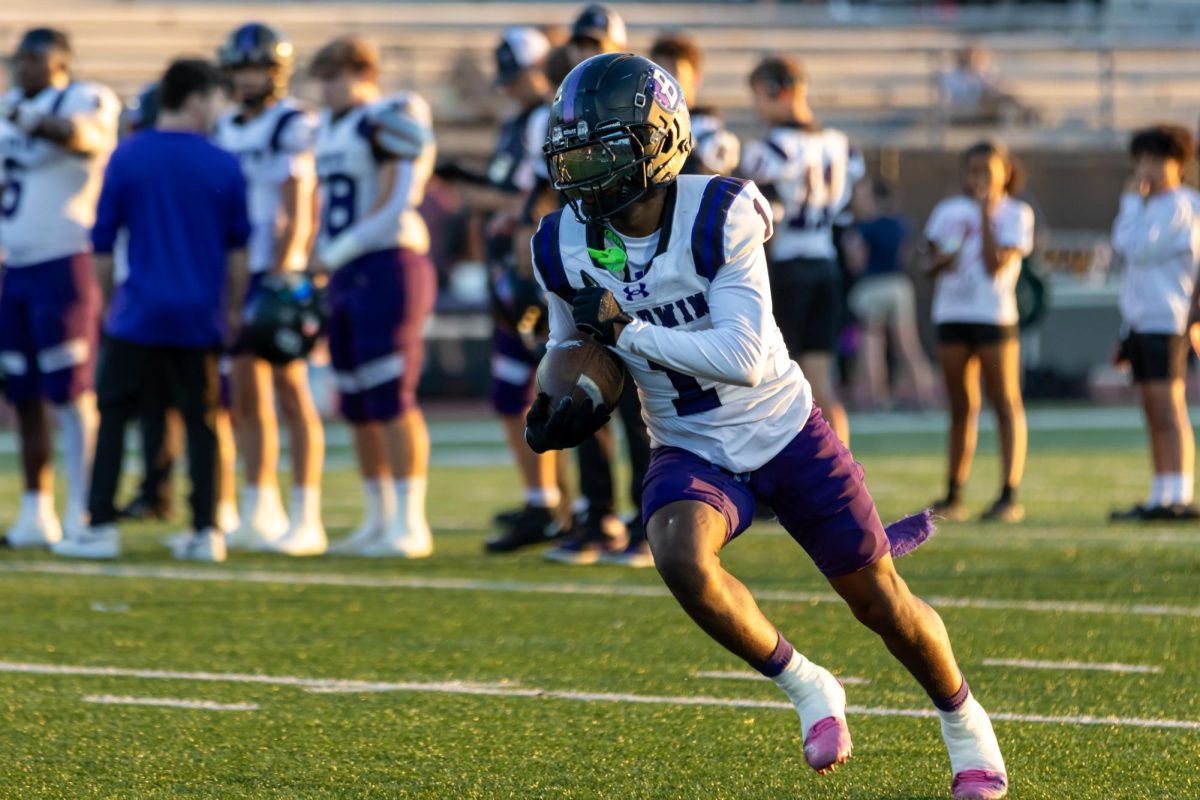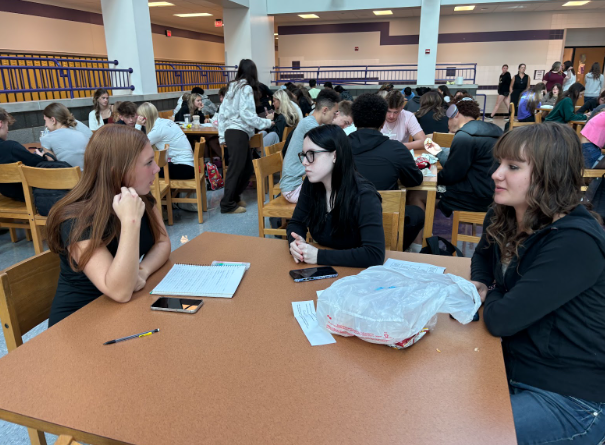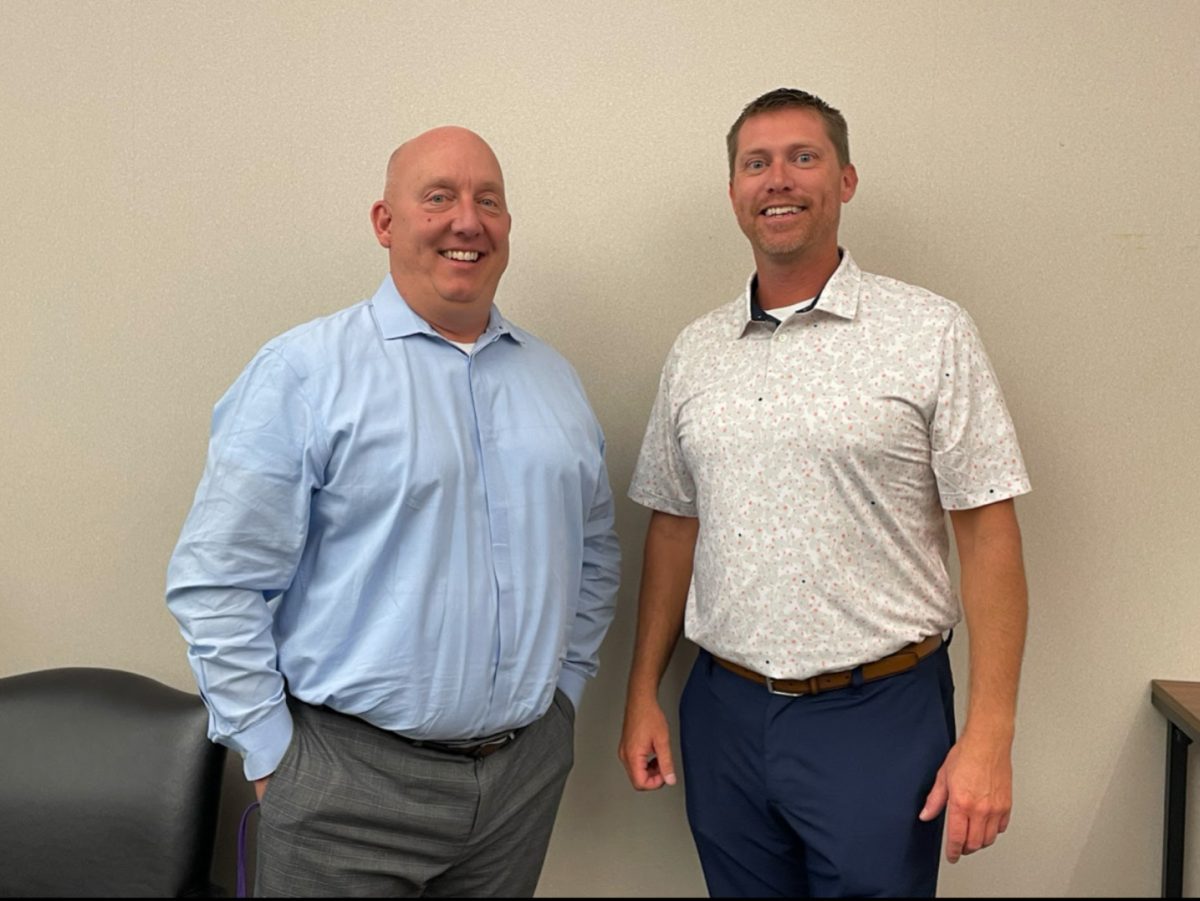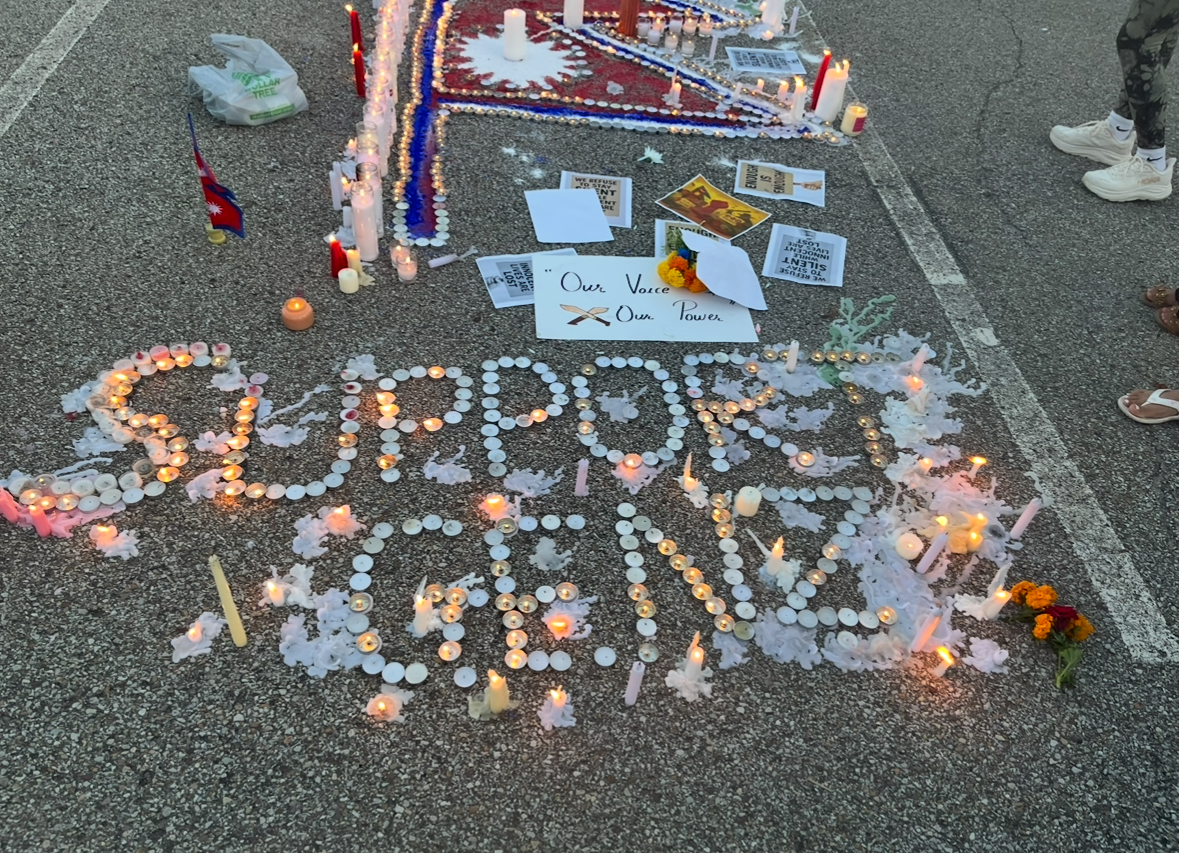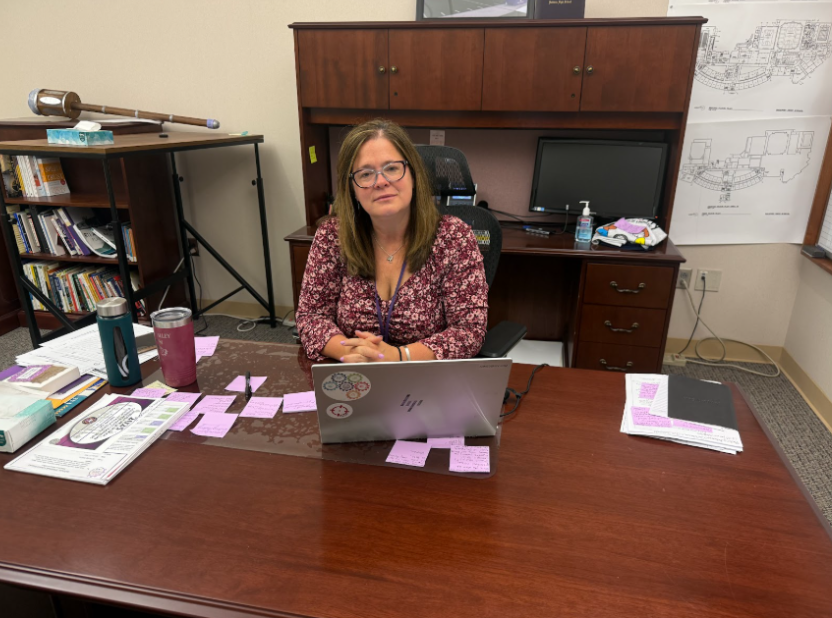‘Twinning’ doesn’t mean the same thing for everyone
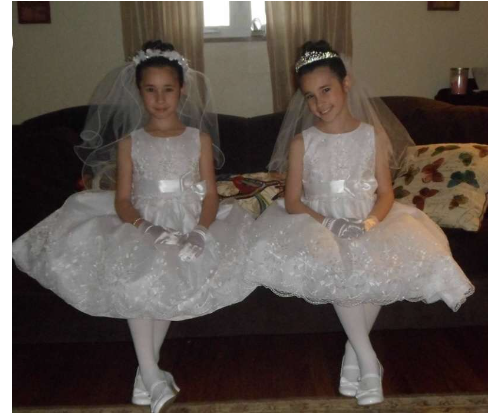
Whether they consider each other built-in best friends or their first frenemy since the womb, twins have a unique perspective on life.
Twins are quite rare, with Stanford Medicine reporting that twin births only occur in 32.6 out of a thousand births. Twins can be either identical, in which one fertilized egg splits to create two babies with identical DNA, or fraternal, which involves two fertilized eggs. Regardless of the type they are, twins have varied experiences growing up.
Kristen Asplin, assistant professor of psychology at the University of Pittsburgh-Greensburg, said that because twins grow up together, “I wouldn’t expect that much difference in personality development – especially for identical twins, who would genetically have the same potential skills and interests.”
Yet Asplin said that a theory about family systems suggests that “all members of a family create a system that needs to balance. (It) suggests that twins who are too much alike in behaviors and interests would be competing for the same space,” Asplin said.
To compensate, twins may try to find their own expertise or set of interests to differentiate themselves from each other.
“This would mean the twins may deliberately try to dress or behave differently, and eventually choose different friends or jobs,” Asplin said.
An article from the National Library of Medicine noted that relationship quality doesn’t differ between identical, fraternal, and non-twin siblings. Twins may be close or not close, and they can be very similar or different in terms of personality.
“Twins are something completely unique,” Asplin said. “While they can be closer in relationships, behaviors, and skills to each other than non-twin siblings, they are actually not as different from non-twin siblings as you might think.”
Though it may be more challenging for others to see “twins as unique when they look and act similarly,” it is important to understand that everyone has unique perspectives that are all equally valuable, Asplin said.
That idea is reflected in the experiences of some of the twins who attend Baldwin.
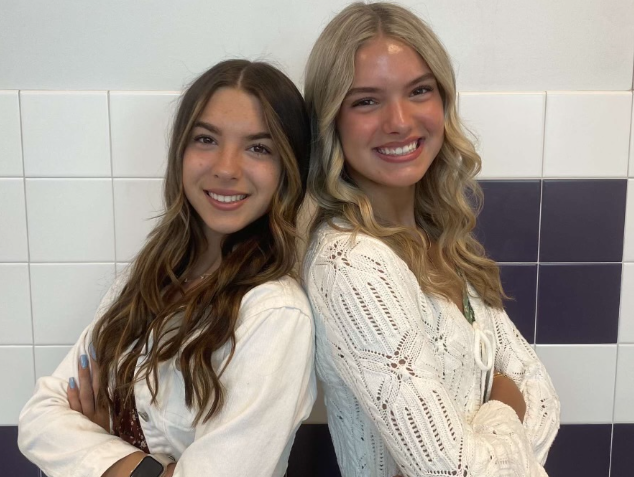
Seniors Brooke and Brynn Seaman are fraternal twins who say they feel like basically the same person most of the time.
“We have the same interests, the same friends, and we have always been super close with each other,” Brooke Seaman said.
They see each other as their built-in best friends and do almost everything together.
“We bring each other out of our comfort zones. She has pushed me to become extroverted,” Brooke Seaman said. “She helps me become a better person and I do the same for her.”
Brynn Seaman said that being a twin has a significant influence on her life.
“She has helped me a lot, and with her, I never feel alone in my life. It has always been nice for me to have her as a twin,” Brynn Seaman said.
There are both challenges and advantages to having a best friend since birth.
“A major advantage is that I always have someone there for me. However, being a twin, specifically a girl, we are always comparing ourselves to each other,” Brooke Seaman said. “I don’t even think it is on purpose. I think we just always feel like we want to be so much like each other. It is something we have always struggled with, even as little kids.”
The twins have both always had the same friends growing up.
“We feel obligated in a way to have the same friends. For example, if Brynn gets a new friend, then I feel like I have to have that same friend,” Brooke said.
They both feel that they are reliant on each other.
“We feel like us both being the same gender plays a big role in that,” Brooke said.
Brooke and Brynn think it’s funny and cool that they get referred to “as one unit.”
“When we first meet new people and we mention we are twins, people always say how we do not look or sound alike,” Brooke said. “But when they get to know each other, they refer to us as the twins – ‘oh the twins are doing this’ – mostly because we do everything together.”
The girls carry their similarities into other aspects of their lives.
The girls are both attending Duquesne University and are going to be majoring in nursing.
“When we were younger, my mom tried to separate us so we could try and make different friends and have different lives,” Brooke said. “But we ended up still having the same friends and similar lives.”
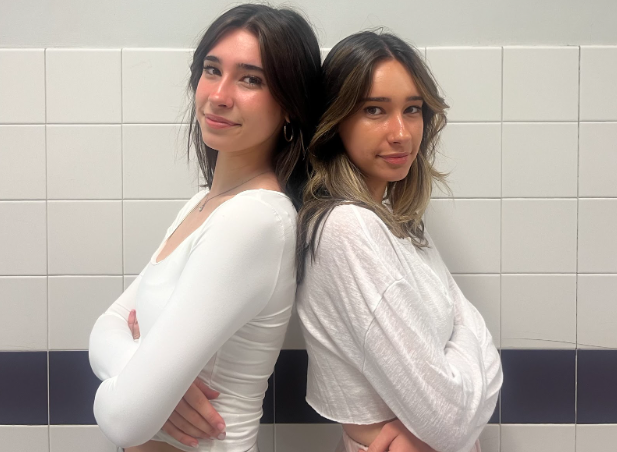
Growing up, seniors Hannah and Sydney Kobistek had a difficult time finding their own sense of individuality and making friends throughout elementary and middle school due to their twinship.
“We always had trouble making friends in school because we were always together and had a codependency that often happens with twins,” Sydney Kobistek said. “We realized that kids at school tend to leave us out of things because they figured we had each other, or we thought that we weren’t liked, so we started to pull away, which created a vicious cycle of insecurity.”
While it is often expected for identical twins to be identical in most ways, Sydney and Hannah Kobistek could not be more different from each other.
“It is difficult being an identical twin because we disagree so much since we are very different,” Hannah Kobistek said. “People expect that as identical twins, we think the same, which is one of the many myths about twins. But our personalities are so much more different than people realize.”
The twins both feel that being compared to and thought of as the same has been harmful to them throughout their lives.
“We have been being compared since the day we were born. The nurse even labeled us as ‘Happy Hannah’ and ‘Serious Sydney.’ People did not realize that the things they were saying could be offensive or hurtful at times,” Sydney Kobistek said.
The twins said they both “felt like zoo animals to be looked at or pointed out like objects. For example, our intelligence, physical characteristics, athletic ability, personality traits, and talents are always being compared,” Sydney Kobistek said.
Along with the comparisons, there is the issue of the more “dominant twin.”
“In every twin relationship, there is a dominant twin. Somehow I became the dominant twin because I was ‘baby A,’ born one pound heavier and one inch larger. So everyone always expected me to be the leader,” Sydney Kobistek said. “Over time I became the ‘enabler,’ making sure my twin had her life together, money for school activities, permission slips, assignments.”
Even with their struggles of constant comparison, they still value being each other’s built-in best.
“I think we share a very special bond with each other, growing up so close. People always ask if we can read each other’s minds and I’ll say yes but I’m not totally joking. I think we are affected by each other’s emotions a lot more than the average person,” Hannah Kobistek said. “If my twin is feeling sad that can affect the other one to feel the same way. I think this is because we are around each other so much that our energy becomes one, and it’s just natural.”
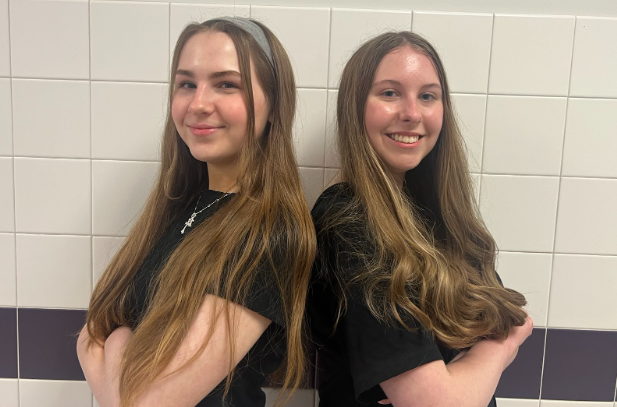
Although twins are often seen as one unit, seniors Leah and Hannah Black are fraternal twins who are polar opposites of one another.
“We never have liked to look alike even when we were younger, and over the course of the years we have developed completely different personalities and hang out with different people and just have overall different interests,” Leah Black said.
Hannah Black agrees,
“We both have totally different groups of friends and work different jobs. I work at a clothing store and she works at a restaurant,” Hannah said. We wear different styles of clothing and aren’t very similar to each other.”
Getting gifts when they were younger was sometimes difficult.
“Growing up, for birthdays and Christmas we would get the same gifts because everyone automatically assumed we liked the same things because we were twins,” Hannah Black said.
Often it is assumed that they tell each other everything, but that is not the case, Hannah Black said.
Leah agreed.
“We do rely on each other sometimes, but we mostly have different friend groups and are really different overall,” Leah said. “So we don’t do a lot of things together.”
Despite their differences, they still manage to have a close relationship.
“I feel we are really close and we usually tell each other so much. Growing up we had every class together, so we would never separate from each other,” Hannah Black said.
Leah is quieter and Hannah is outgoing, so they are in entirely different friend groups, Leah Black said. However, Hannah tries to encourage Leah to get out of her shell.
“She pushes me to meet more people because she knows how shy I am,” Leah Black said.
They both like to tell teachers and friends that they are twins.
“Every time a teacher asks to say something interesting about yourself, the first thing I say is that I have a twin, and a lot of people think that is cool,” Leah Black said.
Her sister does the same.
“I do think being a twin has influenced my personality because the first thing I tell anyone is that I have a twin to see their reaction because usually people are surprised,” Hannah said.
Regardless of how different they are, they both share the same fondest memory of their twinhood.
“One of our favorite memories of being a twin was when we would go to Idlewild Park for the twin fair and we would dress alike,” Leah Black said.
Hannah agreed that seeing other twins there, they both had a very cool experience.
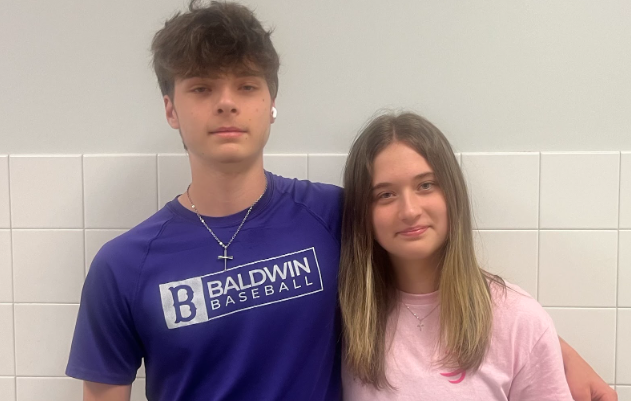
Juniors Emily and Matt Nowicki are boy-girl fraternal twins who view each other just like any brother and sister.
“I feel like we are two completely different people to the point where it (does) not even affect us out in public or anything like that,” Emily Nowicki said. “But I would say that it is different compared to just having a normal sibling because I can think of him as my built-in best friend if I need him.”
Matt Nowicki agreed that having a twin is, for him, like “having a regular sibling.”
Because they are different genders, their relationship functions like a typical sibling relationship.
“We get along most of the time, but we also argue a lot, just like any other siblings would,” Emily Nowicki said.
They don’t think having a twin has brought them any challenges, but they like the ability to help each other out when it comes to schoolwork.
“My sister helps me out with some of my assignments sometimes, and it’s nice to have someone I can rely on like that,” Matt Nowicki said.
Matt also said regardless of being a twin, he still has enjoyed the youngest child privileges due to being the younger twin.
“Being the younger twin, I have noticed that my family in a way tends to look out for me more,” he said.
They did agree that they find themselves approaching life decisions in similar ways.
“I think we handle them just like any other people would, but we can also rely on each other more than others. So we end up being similar,” Emily Nowicki said.
Matt Nowicki agreed.
“People always tell us how we both look somewhat alike and that we think in similar ways,” he said.
The twins both agreed that their personalities have more differences than similarities.
“People always compare us and say that I am the more talkative person while he’s more of a quiet person,” Emily Nowicki said.
The twins said they have always differed in the things that they were interested in, even since they were little.
“My sister plays tennis, and I play baseball, so we have never played similar sports,” Matt Nowicki said.
The twins said they have had very positive experiences growing up together.
“When we were little and went on vacations with our family, we would always stick together and hang out with each other,” Emily Nowicki said.
Though the twins are different from one another, their twinship is something they will always have in common.
“When we were younger, everyone would be very surprised when they found out that we were twins, and that is something that I don’t think has changed even till now,” Matt Nowicki said.






